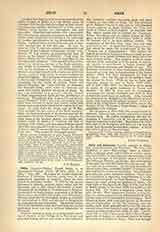

Felix, CELESTIN-JOSEPH, French Jesuit, b. at Neuville-sur-l’Escaut (Nord), June 28, 1810; d. at Lille, July 7, 1891. He began his studies under the Brothers of the Christian Doctrine, going later to the preparatory seminary at Cambrai, where he completed his secondary studies. In 1833 he was named professor of rhetoric, received minor orders and the deaconate, and in 1837 entered the Society of Jesus. He began his noviceship at Tronchiennes in Belgium, continued it at Saint-Acheul, and ended it at Brugelettes, where he studied philosophy and the sciences. Having completed his theological studies at Louvain, he was ordained in 1842 and returned to Brugelettes to teach rhetoric and philosophy. His earliest Lenten discourses, preached at Ath, and especially one on true patriotism, soon won him a brilliant reputation for eloquence.
Called to Amiens in 1850, he introduced the teaching of rhetoric at the College de la Providence and preached during Advent and Lent at the cathedral. His oratorical qualities becoming more and more evident, he was called to Paris. He first preached at St. Thomas d’Aquin in 1851, and in 1852 preached Lenten sermons at Saint-Germain-des-Pres, and those of Advent at Saint-Sulpice. It was then that Msgr. Sibour named him to succeed the Dominican, Father Lacordaire, and the Jesuit, Father de Ravignan in the pulpit of Notre-Dame (1853 to 1870). He became one of its most brilliant orators. The conferences of the first three years have not been published in full. In 1856 Pere Felix began the subject which he made the masterwork of his life: “Progres par le Christianisme”. This formed the matter of a series of Lenten conferences which are preserved for us in fifteen volumes, and which have lost none of their reality. True progress in all its forms, whether of the individual or of the family, in science, art, morals, or government, is herein treated with great doctrinal exactness and breadth of view. The practical conclusions of these conferences Pere Felix summed up every year in his preaching of the Easter retreat, which had been inaugurated by Pere de Ravignan. This was the side of his ministry which lay nearest his heart. While he was in Paris, and especially during his stay at Nancy (1867-1883), and at Lille (1883-1891), the illustrious Jesuit spoke in nearly all the great cathedrals of France and Belgium. In 1881 he even went to Copenhagen to conduct the Advent exercises, and there he held a celebrated conference on authority. Felix founded the Society of St. Michael for the distribution of good books, and employed the leisure moments of his last years in the composition of several works and in the revision of his “Retraites a Notre-Dame”, which he published in six volumes.
The eloquence of Pere Felix was characterized by clearness, vigorous logic, unction, and pathos, even in his reasoning. He lacked imagination and the enthusiasm of Lacordaire, but he was more skilled in dialectic and surer in doctrine. His diction was richer than that of de Ravignan, and while he was less didactic than Monsabre he was more original.
LOUIS LALANDE

